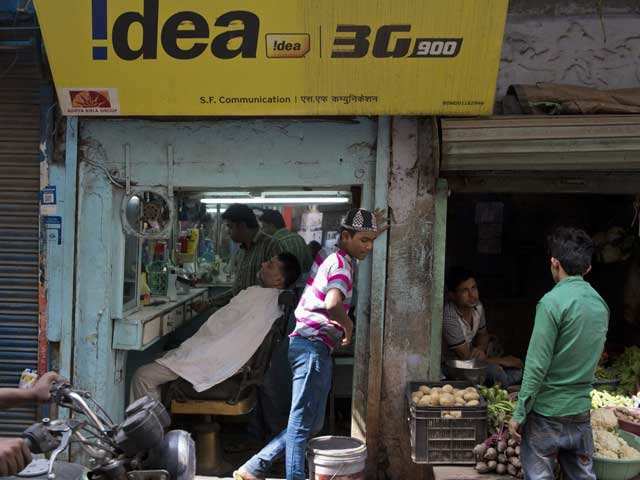INSUBCONTINENT EXCLUSIVE:
Idea Cellular shares ended more than 1% lower in Friday’s trade amid fears that its merger with Vodafone India may get delayed, with the
government likely to press both telecom operators to clear their dues of nearly Rs 19,000 crore (about $3 billion) before it clears the
deal.
Bank of America Merrill Lynch, in a report to clients dated April 13, said any delay in the merger would help rivals Bharti Airtel and
Reliance Jio Infocomm gain incremental revenue market share as they could potentially poach high-end consumers from the two merging
operators.
The US brokerage said it “sees risks of delay to the final telecom department (DoT) approval for the Idea-Vodafone merger”,
citing a report in ET’s Friday edition which said the government might push the two companies to clear their dues relating to a mix of
pending licence fees, spectrum usage charges (SUC) and one-time spectrum charges (OTSC) before approving their merger.
The report added
though that the DoT was likely to be able to push for just the OTSC charges of about Rs5,713 crore, and not the other two, since the matter
pertained to computation of a telco’s adjusted gross revenue, an issue that has been under dispute for more than a decade and is sub
judice.
Still, Bank of America Merrill Lynch said that “an overhang” would be likely in Idea Cellular’s stock price in a scenario
where the merger gets delayed
The Kumar Mangalam Birla group telco’s scrip closed down 1.16% from the previous close, at Rs 72.20, on the Bombay Stock Exchange,
underperforming a positive broader market.
Analysts, however, said that with consolidation in the financially stricken industry almost over,
the revenue recovery is inevitable
Deutsche Bank said the timing of the sector’s revenue recovery is hard to predict but “it is inevitable”
It said, though, that it expected industry revenue to decline in the current financial year, which began on April 1, by 9% year-on-year to
$21.6 billion, given that “incumbents continue to calibrate their offers to match Jio’s plans”.
The German investment bank said it was
in the government’s interest to ensure that the health of the telecom sector looks up as it is the largest creditor to the
industry.
“With the sector consolidating into three players – Bharti Airtel, Jio and emerging Idea-Vodafone merged entity – the
government would be dependent on the health of these three companies to collect a large proportion of the annual licence fees and spectrum
payments,” Deutsche Bank said in a note seen by ET.
The government, it said, gets Rs 50,000 crore from the telecom sector, including Rs
17,000 crore a year in licence or spectrum fees and as much as Rs 32,000 crore in annual instalments on spectrum debt.
Despite revenue
recovery hopes, analysts said competition would continue in the near term as incumbents try to hold on to revenue share and customers amid
continuing pricing aggression from 4G newcomer, Jio.
In its latest move, market leader Bharti Airtel rolled out a special customer rewards
drive on Friday, offering dollops of free data to induce its 2G/3G users to go 4G
Under the initiative, customers on 2G/3G mobile devices would be eligible for 30GB of free data when they upgrade to a 4G smartphone.
Jio
and Airtel have both also rolled out offers around the Indian Premier League (IPL) to lure cricket lovers.
The telecom industry has been
facing stiff competition for long, with tariff wars hurting telco bottom lines, although matters got aggravated following the entry of Jio,
whose disruptive tariffs compelled incumbent carriers to respond, putting further pressure on their revenues and profits.
These factors had
triggered consolidation in the telecom sector, precipitating merger announcements by some players and exits or buyouts by others
2 and 3 ranked Vodafone India and Idea Cellular to announce a merger deal, while Bharti Airtel bought out Telenor India and Tata
Teleservices’ consumer mobility business
Fringe player Reliance Communications shut its wireless business while Aircel shrunk its own, leaving Airtel, Jio and the emerging
Vodafone-Idea combine as the only dominant private players.

